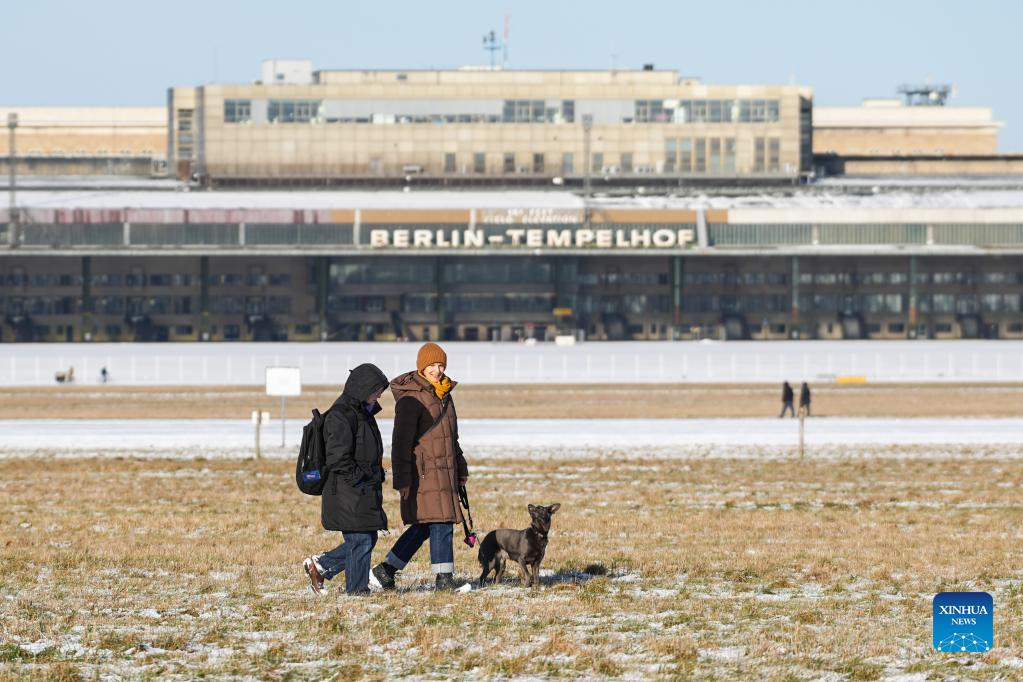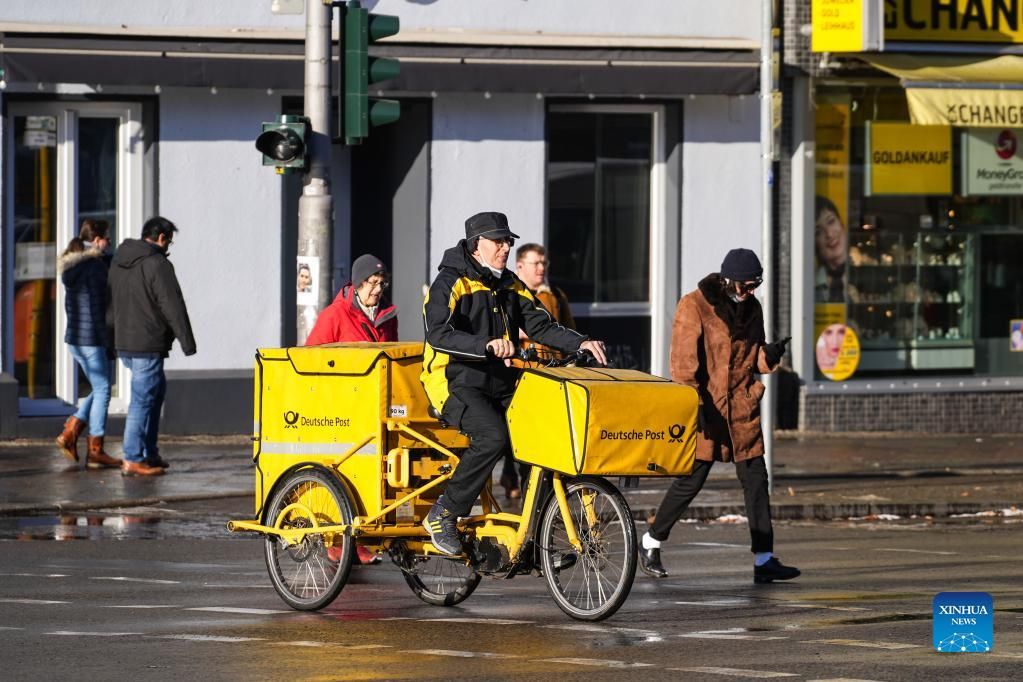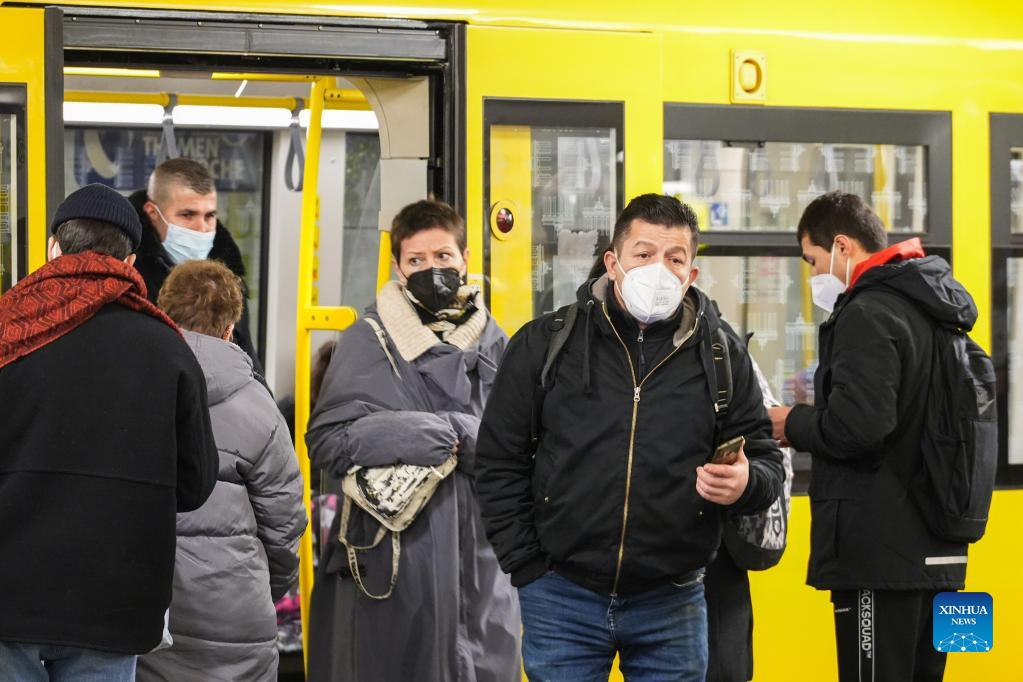
People walk at a park in Berlin, Germany, on Jan. 21, 2022. (Photo by Stefan Zeitz/Xinhua)
BERLIN, Jan. 21 (Xinhua) -- Germany's seven-day COVID-19 incidence continued to surge and exceeded 700 for the first time since the pandemic began, the Robert Koch Institute (RKI) for infectious diseases said on Friday.
The nationwide seven-day incidence rate reached 706.3 new infections per 100,000 inhabitants, after 638.8 on the previous day, according to the RKI. Daily infections in Germany also climbed to a new record as 140,160 cases were registered within 24 hours, around 48,000 more than a week ago.
"In Germany, the fifth wave of the COVID-19 pandemic has begun with the dominant circulation of the Omicron variant," the RKI said in its weekly report on Thursday. The more contagious variant was now predominant in Germany and accounted for 89 percent of cases last week.
Due to limited testing capacities, the exact peak of the Omicron wave in Germany could not be accurately measured by reported data, the RKI said. "However, the magnitude and the crucial trends in the epidemiological development are reliably indicated."
At the same time, the country's vaccination campaign is slowing down again with 640,000 vaccinations on Thursday, according to official data. Chancellor Olaf Scholz said last week that the goal was to administer more than one million vaccines per day, just as the country did before the Christmas holidays.
As of Thursday, 73.2 percent of the country's population had been fully vaccinated, with at least 41.2 million booster shots administered, according to the official figures. However, 20.5 million people in Germany are still unvaccinated. ■

A postman rides a bicycle on a road in Berlin, Germany, on Jan. 21, 2022. (Photo by Stefan Zeitz/Xinhua)

Passengers wearing face masks get off a subway train in Berlin, Germany, on Jan. 21, 2022. (Photo by Stefan Zeitz/Xinhua)

Passengers wearing face masks are seen at a metro station in Berlin, Germany, on Jan. 21, 2022. (Photo by Stefan Zeitz/Xinhua)



